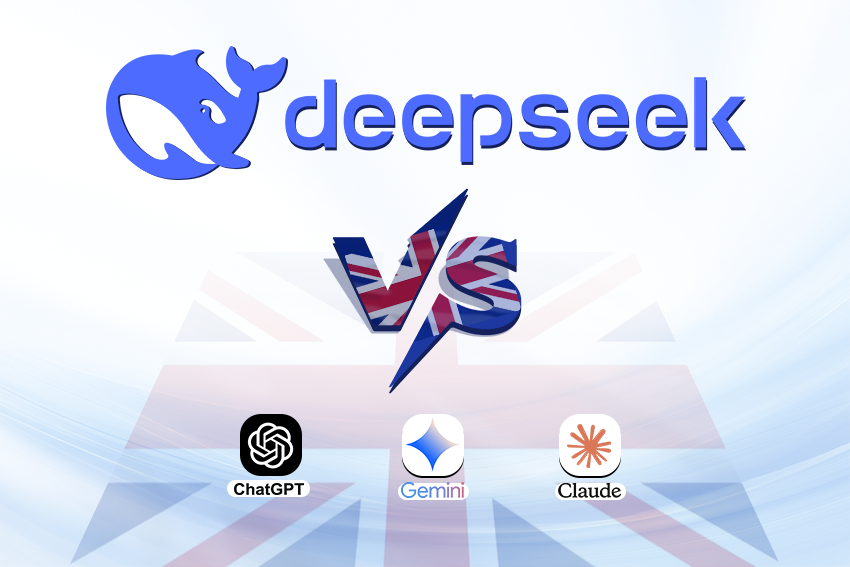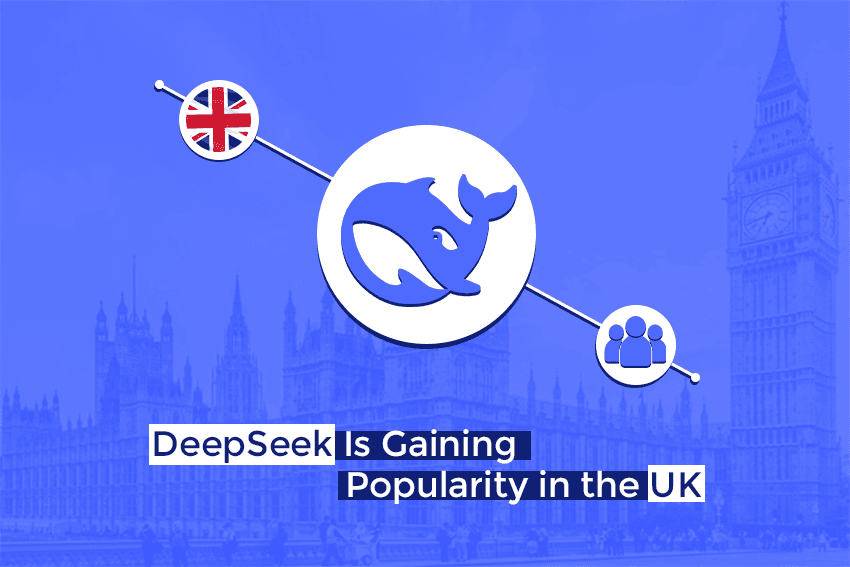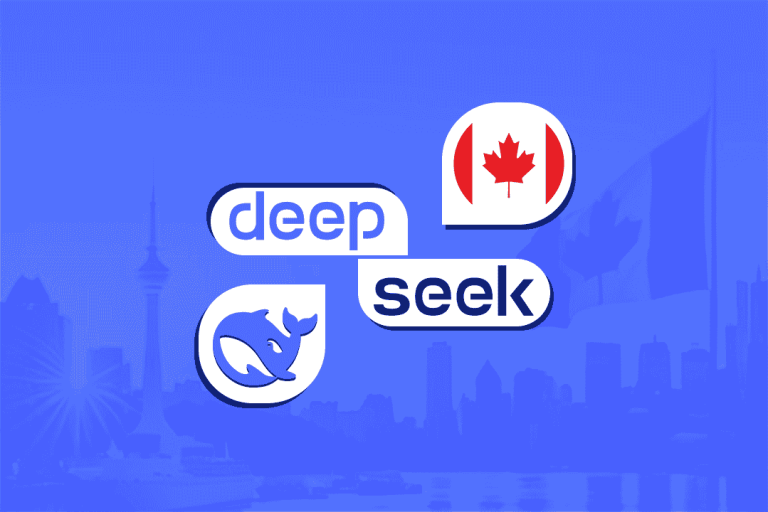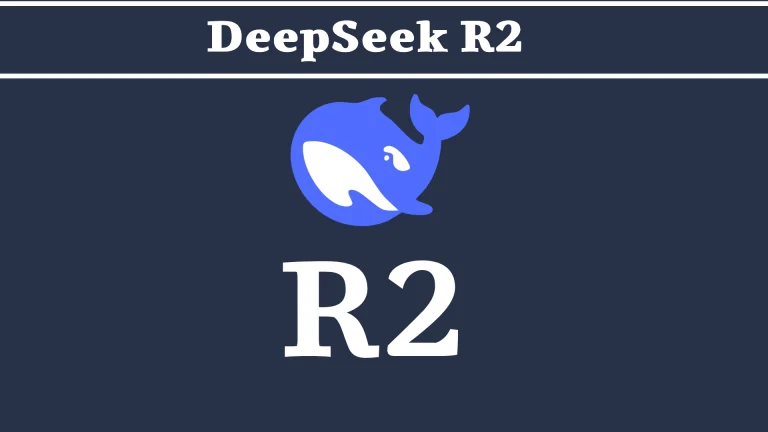DeepSeek’s AI assistant has swiftly climbed app store charts worldwide, including the UK, reflecting its popularity as a free alternative to ChatGPT.
In the UK, tech enthusiasts, students, and businesses alike are buzzing about DeepSeek Chat – a new AI chatbot platform that promises GPT-4-level capabilities without the usual barriers.
DeepSeek is an open-source AI developed by a Chinese startup in 2023, and it delivers advanced chatbot and coding assistance free of charge with no login required.
This article explores why DeepSeek is gaining traction in the UK, examining its unique features, local adoption, and real-world applications, all through a UK-focused lens. We’ll also compare DeepSeek with other AI assistants and consider trust and safety aspects.
What is DeepSeek Chat? An Overview of the GPT-4 Rival
DeepSeek Chat is an AI chatbot platform that has quickly garnered international recognition for its high-performance yet low-cost AI models.
Developed in Hangzhou by a startup founded in 2023, DeepSeek made headlines when its flagship model DeepSeek-R1 was released in early 2025. The model demonstrated performance on par with leading systems like OpenAI’s GPT-4 – but built at a fraction of the cost and released as open source.
In fact, DeepSeek’s V3 model uses an innovative Mixture-of-Experts architecture and boasts around 600 billion parameters, making it one of the largest open models available (released under the permissive MIT License).
This open approach means developers and researchers worldwide – including those in the UK – can use or even modify DeepSeek’s models freely, without commercial restrictions.
Why does this matter? In practice, DeepSeek offers a free AI chat service that anyone can use via a web browser or mobile app.
The platform allows users to start chatting instantly – asking questions, getting coding help, or generating content – all with no sign-up and no fees.
By providing GPT-4-level intelligence at zero cost, DeepSeek has radically lowered the barrier to entry for advanced AI. This led to explosive growth globally: in early 2025, the DeepSeek app skyrocketed to the #1 spot on app download charts in over 150 countries, amassing over 20 million daily users.
Within days of release, it even outranked OpenAI’s ChatGPT on Apple’s App Store, a meteoric rise that rattled the tech industry and investors.
Such rapid adoption is a clear indicator that UK users and others worldwide are eager for powerful AI tools that are both accessible and affordable.
Unique Features and Benefits of DeepSeek
What makes DeepSeek stand out in a crowded AI landscape? The platform packs a robust set of features tailored to individuals, developers, and enterprises alike:
- Instant, Free AI Access: DeepSeek Chat is completely free to use and requires no installation or registration. Users can simply open the website or app and start chatting immediately. This frictionless access is appealing to students, freelancers, and small businesses who might be deterred by subscription fees or sign-up forms.
- Multilingual and Global: DeepSeek understands and responds in multiple languages, making it useful for a diverse, global user base. UK users benefit from this by getting support in English and potentially other languages common in the UK (such as French, Spanish, or even regional languages), broadening its utility in multicultural environments.
- Coding Assistance: A major draw for DeepSeek is its prowess in programming help. It can debug code, suggest optimizations, and explain algorithms across various coding languages. This feature is akin to having a free coding assistant – a boon to the UK’s developer community and tech startups looking to accelerate development without investing in pricey AI tools.
- Structured and Transparent Responses: DeepSeek is known for providing structured outputs and reasoning in its answers. It often walks users through its thought process or presents information in an organized way. For example, in tests DeepSeek could explain the structure of a Shakespearean sonnet while composing it, even double-checking the meter as it generated the poem. This transparent “chain-of-thought” approach is valuable in education and research, as it helps users follow how the AI arrived at an answer – rather than just receiving a black-box result.
- Open-Source Innovation: Unlike most leading chatbots, DeepSeek’s core technology is open-source. This encourages a community of researchers and developers (including those in UK universities and startups) to continuously improve and adapt the models. The transparency of open-source fosters trust and rapid innovation. For technically adept users or organizations, DeepSeek’s models can even be self-hosted or fine-tuned for specific needs.
In terms of technology, DeepSeek’s architecture is cutting-edge.
The R1 model introduced a novel approach to reasoning that challenged the notion that only Big Tech could produce top AI systems.
By optimizing training techniques and using clever engineering (reportedly training R1 for only around $6 million, versus the hundreds of millions spent on comparable models), DeepSeek achieved a rare combination of high performance and efficiency.
This efficiency translates into fast response times and up-to-date knowledge for users, as the models continue to be improved and expanded with community input.
In short, DeepSeek’s feature set – from free access and multilingual support to strong coding capabilities and transparent reasoning – provides a compelling value proposition that resonates strongly with UK users seeking a powerful yet cost-effective AI assistant.
Why UK Users Are Embracing DeepSeek Chat
As a local perspective, the UK has shown a keen interest in DeepSeek’s rise. British media and experts have taken note of DeepSeek as a serious new contender in AI.
In a February 2025 evaluation by The Guardian, an expert from the Alan Turing Institute (UK’s national AI institute) remarked that “it is amazing [DeepSeek] has come from nowhere to be competitive with the other [AI chatbots]”.
This surprise underlines how quickly DeepSeek matched the prowess of well-established rivals, impressing UK researchers who tested it alongside ChatGPT and others.
In the same review, DeepSeek demonstrated advanced capabilities (like complex poetry writing and image reasoning) on par with Western models, albeit with some differences in content due to its training background.
Such performance, especially given that DeepSeek is free to use, has not gone unnoticed by the UK public and tech community.
UK startups and businesses are also eyeing DeepSeek as a game-changer. The cost of AI services has been a barrier for many smaller European firms compared to their U.S. counterparts.
DeepSeek offers a solution by providing enterprise-level AI at a fraction of the cost.
Seena Rejal, Chief Commercial Officer of London-based NetMind.AI, was an early adopter and praises DeepSeek for “democratising AI and levelling the playing field with Big Tech”.
His company switched to DeepSeek’s models to power their applications and found it significantly cheaper without any loss in quality for end users.
In fact, analysts at Bernstein have estimated that DeepSeek’s pricing for API access is 20 to 40 times lower than OpenAI’s rates for equivalent usage.
(For perspective, OpenAI’s GPT-4 API can charge a couple of dollars or more per million tokens, whereas DeepSeek charges only a few cents.)
This huge cost advantage means UK startups, which often operate on lean budgets, can integrate advanced AI into their products or services without breaking the bank.
Entrepreneurs in Britain’s tech hubs (from London’s fintech scene to Cambridge’s biotech startups) are increasingly experimenting with DeepSeek to add AI capabilities like natural language queries, automated customer support, or data analysis into their workflows at minimal cost.
On the consumer side, UK individuals are flocking to DeepSeek Chat for personal and professional use.
The convenience of having a free, high-quality AI assistant is very appealing in contexts like education (homework help or tutoring), creative content generation, or everyday questions and tasks.
It helps that DeepSeek’s mobile app achieved top rankings – UK users searching the app stores for AI chatbots could easily see DeepSeek as a top-rated productivity app in early 2025.
The word-of-mouth has grown as well, with online communities (even Reddit discussions) debating DeepSeek as a potential “ChatGPT killer” due to its similar capabilities without the paywall.
While it’s debatable whether it’s better than ChatGPT in all respects, the value-for-money (or value-for-no-money) is indisputable and has lowered the entry barrier for AI use in the UK.
Another reason UK users and organizations find DeepSeek attractive is its versatility across industries and tasks. DeepSeek Chat isn’t positioned only as a coding assistant or only a writing aid – it’s a general AI with many use cases.
In fact, the platform offers preset “professional AI assistants” for various needs, such as a virtual Education Tutor, Career Coach, Business Consultant, Customer Support agent, Financial Advisor, and more (accessible directly on deep-seek.chat’s interface).
This suggests that UK educators, professionals, and even public sector workers could leverage DeepSeek in domain-specific ways.
For instance, a teacher in the UK might use the AI Education Tutor mode to create quiz questions or explain concepts to students, whereas a small business owner might use the AI Business Consultant mode to get ideas for marketing plans or market research.
The broad applicability of DeepSeek – combined with the fact that it is open and adaptable – means users in different UK sectors can mold it to their purposes.
Real-World Applications: DeepSeek in UK Education, Business, and Research
One sector where DeepSeek is making waves is education. UK universities and schools have been grappling with how to utilize AI chatbots in teaching and learning. DeepSeek’s arrival provides new possibilities.
Thanks to its transparent reasoning feature, some educators see an opportunity to use DeepSeek as a “reasoning partner” for students rather than just a shortcut to answers.
The AI can break down solutions step-by-step, which could help in teaching complex subjects like math or physics by showing the work, not just the final answer.
For example, a university student could ask DeepSeek to analyze a piece of literature or solve a math problem, and the chatbot might outline its thought process. This gives students insight into problem-solving approaches, potentially strengthening critical thinking skills.
In fact, Times Higher Education reported that DeepSeek’s more open reasoning process and affordability point toward a future of AI integration in higher education that is more collaborative and transparent, as opposed to simply providing black-box answers.
Some UK lecturers, however, have also raised concerns about DeepSeek’s built-in content filters (“censorship”) on certain topics (especially related to Chinese political sensitivities) and how that might affect academic discussions or the completeness of information students receive.
This has sparked healthy debate in UK academia about the pros and cons of using DeepSeek in coursework – balancing its powerful assistance with the need for critical evaluation of its outputs.
In the customer service and business domain, DeepSeek is emerging as a cost-effective solution for AI-driven support.
UK companies, from e-commerce retailers to banks, are always exploring chatbots to handle customer queries or internal helpdesks.
DeepSeek’s API allows these companies to deploy conversational AI agents that can understand customer questions and provide answers or perform actions, at a fraction of the usual cost.
Since DeepSeek supports integration with popular platforms (the DeepSeek website highlights connectors for Slack, Discord, Microsoft 365, Google Workspace, and more), a UK business could embed DeepSeek into their existing communication tools with relative ease.
For instance, a UK online retailer could use DeepSeek to power a website chat widget that helps customers track orders or answer FAQs, improving service availability 24/7 without hiring additional staff.
Because it’s multilingual, this same solution could assist English speakers and also UK customers who prefer other languages.
Some European startups have already switched to DeepSeek for such purposes – Novo AI in Germany integrated DeepSeek into their application in mere minutes, illustrating how straightforward adoption can be.
We can expect UK startups to follow suit if they haven’t already, especially as keeping costs low is crucial in the competitive startup ecosystem.
For research and development, DeepSeek’s open-source nature is particularly appealing.
Researchers in the UK can directly access DeepSeek models (such as through the Hugging Face platform or GitHub, as provided by the DeepSeek team) to experiment with them, fine-tune them on specialized datasets, or study their behavior.
This is something not possible with closed models like the full GPT-4, and it could accelerate AI research in academic circles.
A research lab could use DeepSeek to analyze large datasets of text, to extract insights or summarize papers, effectively acting as an AI research assistant.
Additionally, industries like healthcare or finance in the UK, which require keeping data in-house due to privacy, might consider using DeepSeek’s open models on their own secure servers, given the right expertise – thus harnessing powerful AI while meeting data compliance, an approach that is harder with proprietary models.
DeepSeek’s founder, Liang Wenfeng, has a background in quantitative finance, and the company’s vision is to make advanced AI accessible worldwide.
In line with that vision, we might see UK fintech firms or financial analysts using DeepSeek to parse market data or inform trading strategies, leveraging AI that’s both cutting-edge and under their direct control.
DeepSeek vs. Other Chatbot Competitors (A UK View)

The rise of DeepSeek inevitably invites comparison with other AI assistants popular in the UK, such as OpenAI’s ChatGPT, Google’s Bard/Gemini, Anthropic’s Claude, or newer entrants like Musk’s xAI Grok.
Each has its own strengths and considerations:
- ChatGPT (OpenAI) – ChatGPT is the incumbent leader and a household name in AI chatbots. UK users have extensively adopted ChatGPT for everything from writing help to coding tips. However, the most advanced version (GPT-4) typically requires a paid subscription (ChatGPT Plus) and still has usage limits. DeepSeek, offering comparable performance for free, stands out as a compelling alternative. In tests, both ChatGPT and DeepSeek can produce high-quality, fluent responses; in fact, experts noted that by 2025 it became “difficult to differentiate between the chatbots” on many tasks. One difference is that ChatGPT sometimes has the edge in conversational nuance and creativity, while DeepSeek might provide more structured, fact-focused answers. For UK users, another practical point is data residency – OpenAI processes data on Western servers, whereas DeepSeek’s processing happens in China. This leads some organizations to weigh privacy and regulatory factors (discussed more below).
- Google Bard / Gemini – Google’s AI assistants are also available to UK users (often integrated into Google Search or Android devices). Bard (and the more advanced Gemini, expected to be a multimodal AI) benefit from Google’s vast knowledge graph and integration with live internet search. DeepSeek has its own web browsing feature for up-to-date information, but as the Guardian test indicated, DeepSeek’s browsing could be hit-or-miss if the service is under heavy load. One advantage DeepSeek holds is openness: while Gemini’s model details are proprietary, DeepSeek’s models are open-source and thus more transparent. For tech professionals and AI experts in the UK, this transparency can inspire greater confidence in understanding how the model works or in customizing it for specific needs.
- Anthropic Claude – Claude is known for its focus on safety and for handling very long context windows (useful for analyzing lengthy documents). There is a free tier of Claude available, but its availability in the UK is somewhat limited compared to ChatGPT/DeepSeek (Claude is often used via specific platforms or APIs rather than a widely promoted public chat app). DeepSeek and Claude both emphasize a degree of safety: Claude avoids harmful content, and DeepSeek similarly has built-in guardrails especially around certain topics (e.g., it refuses queries on Chinese political sensitivities). UK users looking for an AI assistant will find Claude’s conversation style quite friendly and its ability to summarize huge texts valuable, but DeepSeek’s advantage is that anyone can access it instantly, whereas Claude might not be as straightforward to access for the average user. Moreover, DeepSeek’s multi-domain expertise (coding, math, etc.) and continuous improvement driven by a community give it a dynamic edge.
- Local and Open-Source Models – It’s worth noting that Europe and the UK have been exploring open-source AI as well (for example, the French model Mistral or Meta’s LLaMA 2 which is available freely). However, these models typically require one to run them on their own hardware or through technical interfaces, which limits broad adoption. DeepSeek, in contrast, combines the open-source philosophy with user-friendly delivery (a polished chat website and mobile app). In essence, DeepSeek brought an open model to the masses before any Western open model managed to do so at scale. This positions it uniquely: UK hobbyists who might experiment with local AI models can achieve similar or better results faster just by going to DeepSeek’s site. The platform bridges the gap between raw open-source AI and a consumer-friendly service.
Overall, from a UK perspective, DeepSeek’s popularity stems from excelling in the areas Britons care about: cost, accessibility, and performance.
It undercuts major U.S. offerings on price dramatically, it holds its own in capability, and it aligns with a spirit of open innovation. That said, British users and organizations will continue to use a mix of AI tools.
DeepSeek doesn’t necessarily replace ChatGPT or others in every scenario – rather, it expands the options.
In many cases, people might use ChatGPT for one task and DeepSeek for another, or use whichever is more readily available.
The key takeaway is that DeepSeek’s emergence has intensified competition, which is good news for users.
Indeed, Microsoft recently responded to pricing pressure by making an OpenAI advanced model free for certain users – a move possibly influenced by DeepSeek’s impact on the market.
This increased competition should lead to better AI services and lower costs across the board, benefiting end users in the UK and beyond.
Trust, Privacy, and Local Considerations
No discussion of an AI platform would be complete without examining its trustworthiness and any concerns.
DeepSeek’s rapid rise has come with scrutiny from regulators and experts, particularly in Europe and the US, about data privacy and content restrictions.
For UK users, there are a few important points to consider:
- Data Privacy: Using DeepSeek Chat means your prompts and the AI’s responses are processed on servers in China (where DeepSeek’s models run). The platform is transparent about this on its site, noting that while they do not require any personal login data (which is good for privacy), the content of your conversations is still transmitted and stored on Chinese servers. This raises potential compliance questions for companies. For instance, a UK company handling sensitive client data or personal information would need to think twice before inputting it into DeepSeek, as that could constitute an international data transfer. Currently, if individual UK citizens use DeepSeek of their own accord (e.g., a student asking it homework questions), this likely falls outside strict data transfer rules (since it’s a personal use)=. However, if a UK business formally adopts DeepSeek (for example, integrating it into their systems or letting employees use it for work tasks), they would need to ensure GDPR compliance regarding data exported to a jurisdiction like China. The law firm Shoosmiths noted that DeepSeek’s situation – a Chinese AI tool rapidly being adopted in the West – is “not covered by current data protection rules” neatly, and it might prompt new regulations or guidance. In short, while DeepSeek is hugely useful, UK organizations must weigh the convenience against data governance policies. Many may choose to use it for non-sensitive tasks or in a trial capacity until clearer regulations emerge.
- Security and Safety: DeepSeek has some content moderation in place, influenced by Chinese regulations. As observed, it avoids certain political topics or anything that might violate those guidelines. For UK users, this means the AI might refuse queries that other chatbots (like ChatGPT) would answer, especially if it touches on Chinese domestic issues or potentially other sensitive content. This “censorship” aspect has led to concerns in academia that students might receive a filtered worldview on certain historical or political questions if they rely on DeepSeek. On the flip side, DeepSeek’s guardrails also aim to provide “helpful and harmless responses,” which is generally positive for avoiding toxic or harmful content. Users should be aware of these boundaries and not solely depend on one AI for all information – cross-checking answers is always good practice.
- Regulatory Actions: DeepSeek’s popularity has indeed triggered responses from authorities. While the UK has not banned or formally restricted DeepSeek as of this writing, other jurisdictions have acted – for example, Italy’s data protection regulator temporarily suspended DeepSeek in early 2025 over privacy concerns. In the US, some government agencies (like the state of Texas and the US Navy) advised against or outright prohibited using DeepSeek on official devices due to security worries. These actions underline that even though DeepSeek is technically impressive, government bodies are cautious about where data might be flowing and potential risks of a foreign AI system. The UK’s own security and data agencies are likely monitoring the situation as well. British companies in sensitive sectors (finance, healthcare, defense, etc.) may adopt a cautious approach – perhaps testing DeepSeek in non-critical areas first, or sticking to on-premise AI solutions – until they are confident in its compliance and safety track record. DeepSeek’s team has reported working on security improvements after facing “large scale malicious attacks” (likely indicating some early growing pains with cyber threats as they scaled up). As with any fast-growing tech platform, users should stay updated on DeepSeek’s policies and news, and apply their own risk management (e.g. avoid inputting confidential information).
It’s important to note that DeepSeek Chat’s operators are proactive about user trust in many ways.
They emphasize that no personal account data is collected to use the service, allowing anonymity for users just trying out the AI.
They also publish a detailed FAQ and even the academic paper describing the model’s architecture, showcasing a level of transparency uncommon among commercial AI providers.
DeepSeek being open-source means the code and model details are open to inspection by the community, which can increase trust (anyone can audit it for backdoors or vulnerabilities, theoretically). For UK users, this openness is reassuring in contrast to completely opaque AI systems.
Going forward, trust will build as DeepSeek continues to prove itself – or falter if there are missteps. So far, aside from the data location issue and some content restrictions, DeepSeek has built a reputation of delivering reliable results.
It will need to maintain high standards (and perhaps work with international regulators) to sustain its popularity in discerning markets like the UK.
Conclusion: DeepSeek’s UK Traction and the Road Ahead
DeepSeek Chat’s surge in popularity in the UK is a microcosm of its global impact – it exemplifies how an innovative upstart can disrupt the AI landscape dominated by American tech giants.
By offering free, high-quality AI capabilities and embracing an open-source ethos, DeepSeek has lowered barriers and attracted a wide following, from UK students and developers to startups and tech thought-leaders.
Its unique features like transparent reasoning, coding support, and multi-industry versatility align well with the needs of UK users who seek practical and trustworthy AI tools for various tasks.
Moreover, the cost savings it enables have tangible appeal in the UK’s business environment, where companies always seek efficiency and value.
That said, the UK perspective on DeepSeek is not one of uncritical hype, but of cautious optimism. British experts acknowledge DeepSeek as “a game-changer” in performance and access. while also urging awareness of its limitations and the broader implications of relying on a foreign AI service.
This balanced view is actually a strength – it means as DeepSeek continues to gain users in the UK, there will also be a dialogue on ethics, data protection, and how best to integrate such tools into society.
If DeepSeek can engage with these concerns constructively (for instance, by enhancing privacy measures or even hosting servers in Europe down the line), it could further solidify its standing in the UK market.
In conclusion, the rise of DeepSeek in the UK underscores a few key points: accessibility can dramatically expand AI adoption; competition drives innovation (and even pushes others to improve or cut prices, benefitting consumers); and community-driven development (via open-source) can yield top-tier technology that rivals the outputs of far larger corporations.
UK users are increasingly turning to DeepSeek Chat as a go-to AI assistant for these very reasons.
As the AI chatbot arena evolves, Britain – with its robust tech sector and academic base – is likely to play an active role in shaping how tools like DeepSeek are used and regulated.
For now, DeepSeek’s growing popularity in the UK is a testament to its value, and it presents an exciting, empowering tool for those ready to explore the next generation of AI – all from a uniquely local perspective of needs and opportunities.



